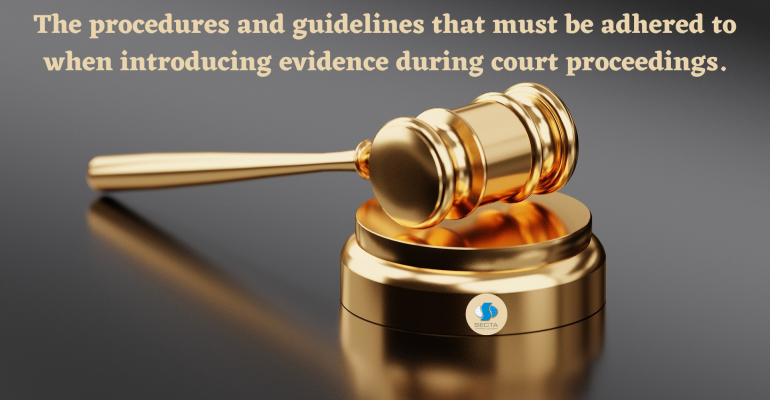The procedures and guidelines that must be adhered to when introducing evidence during court proceedings.
21 April 2023 2023-04-21 0:16The procedures and guidelines that must be adhered to when introducing evidence during court proceedings.

The procedures and guidelines that must be adhered to when introducing evidence during court proceedings.
Types of Courts
There are two main types of courts, that security officers may have to attend.
The NSW Local Court:
The NSW Local Court is a court of summary jurisdiction in the Australian state of New South Wales. It is the lowest level court in the state’s judicial hierarchy and is responsible for hearing and deciding on a wide range of matters, including criminal offenses, civil disputes, and traffic offenses.
The Local Court has jurisdiction to hear and determine criminal matters such as summary offenses (less serious crimes), driving offenses, and bail applications. It also has jurisdiction to hear civil claims for amounts up to $100,000, including claims related to debt, consumer disputes, and tenancy disputes.
The Local Court in NSW is presided over by magistrates, who are appointed by the Governor-General of Australia on the advice of the state’s Attorney-General. The magistrates are responsible for making decisions on legal matters that come before the court, including issuing rulings on evidence, sentencing, and civil damages.
Overall, the NSW Local Court plays an important role in the administration of justice in the state, and its magistrates work to ensure that legal disputes are resolved in a fair and impartial manner.
The NSW District Court:
The NSW District Court is a court of general jurisdiction within the Australian state of New South Wales. It is the intermediate court in the state’s judicial hierarchy, sitting between the Local Court and the Supreme Court. The District Court has jurisdiction to hear and decide on a wide range of civil and criminal matters, including serious criminal offenses, large civil claims, and complex commercial disputes.
The NSW District Court has a chief judge and a number of other judges who are appointed by the Governor of New South Wales on the advice of the state’s Attorney-General. The judges preside over trials and other legal proceedings, and they have the power to make decisions on matters such as bail, sentencing, and civil damages.
The District Court has several specialist lists, including a commercial list, a personal injury list, and a family law list. It also has a jury panel that is responsible for hearing criminal trials and making decisions on guilt or innocence.
Overall, the NSW District Court plays an important role in the administration of justice in New South Wales, and its judges work to ensure that legal disputes are resolved fairly and impartially.
www.secta.com.au


